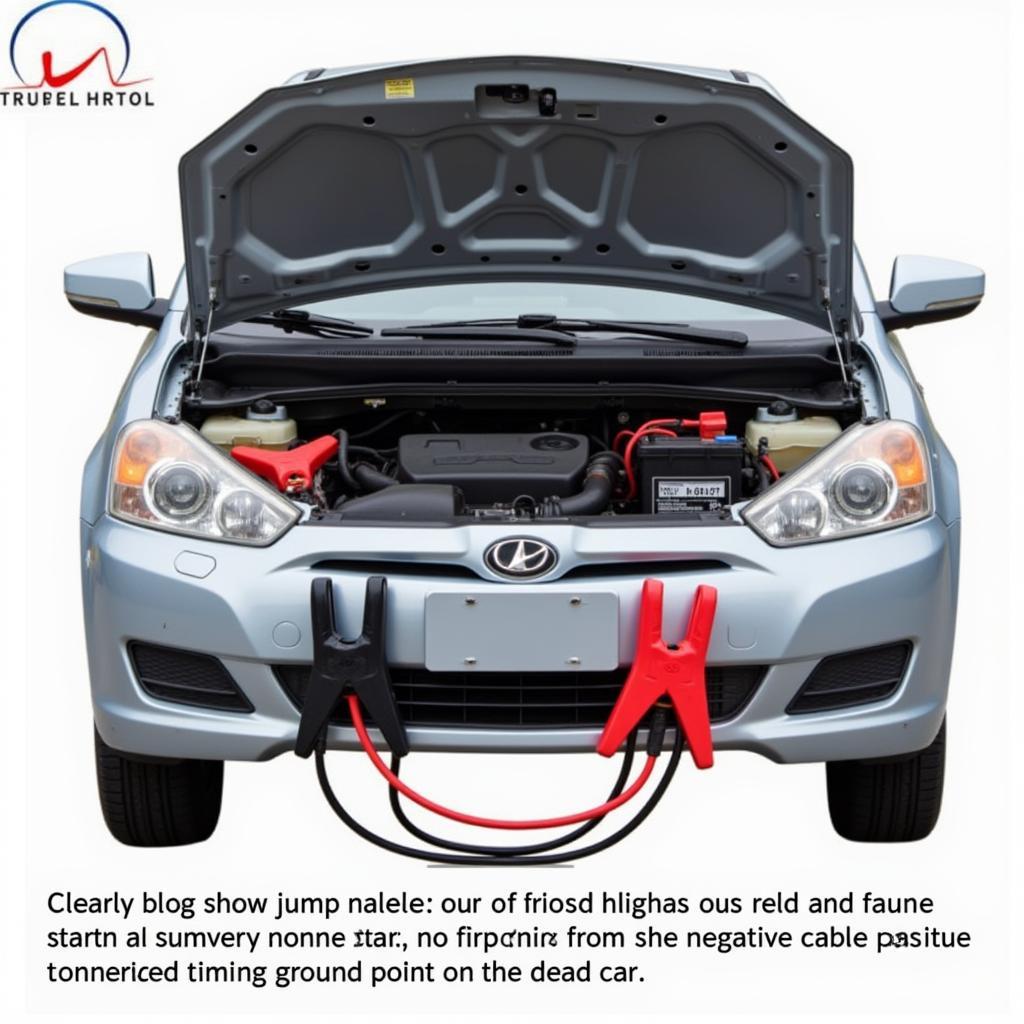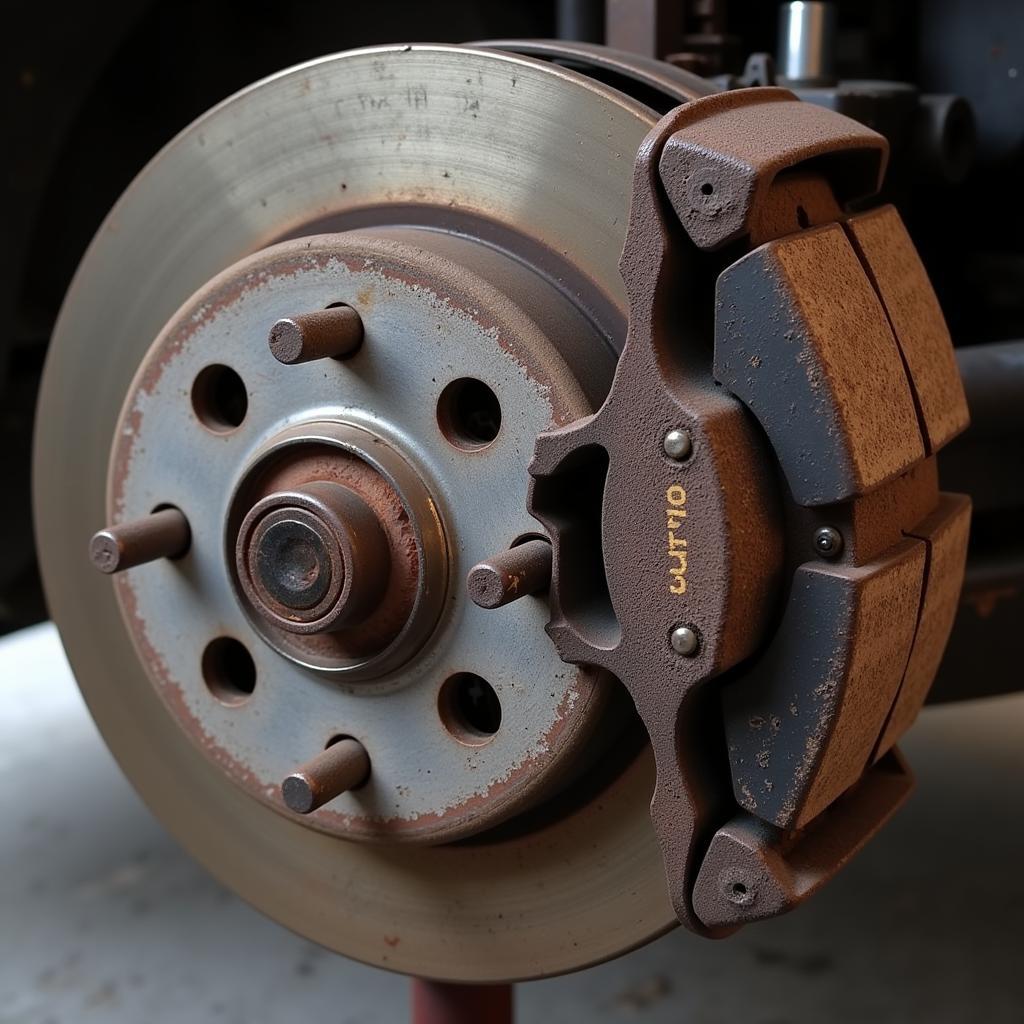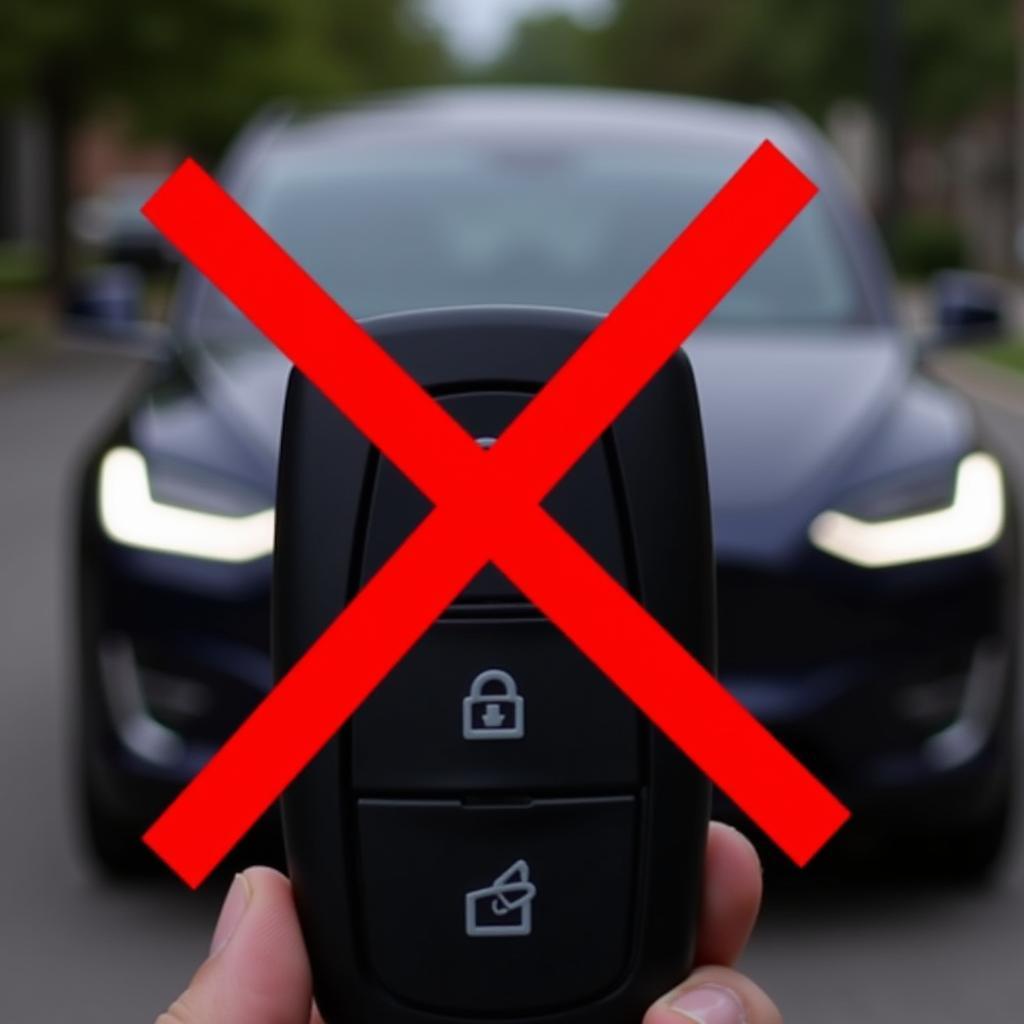A dead car battery is a common and frustrating experience. Whether you’re late for work or stranded on a deserted road, knowing how to handle a car battery run out situation is crucial. This article provides a comprehensive guide to troubleshooting a dead battery, jump-starting your car, and preventing future occurrences.
Why Did My Car Battery Run Out?
Several factors can lead to a car battery run out. Leaving lights on overnight is a classic culprit, but there are other, less obvious causes. A faulty alternator, extreme temperatures, old age, and even short trips where the battery doesn’t have enough time to recharge can all contribute to a dead battery. Understanding the root cause is essential for effective troubleshooting.
How to Troubleshoot a Car Battery Run Out
First, confirm the battery is the issue. Try turning on your headlights. Dim lights or no lights at all suggest a dead battery. Also, listen for a slow cranking sound when you turn the key. If the car doesn’t crank at all, it could still be the battery, but check your connections first. Loose or corroded battery terminals can prevent the car from starting.
Next, check the alternator. A failing alternator won’t charge the battery properly, leading to a car battery run out situation. If you can jump-start the car, but it dies again shortly after, the alternator is likely the problem. Modern cars often have warning lights to indicate alternator issues.
Jump-Starting Your Car Safely
If your car battery run out, jump-starting is a common solution. Locate another vehicle with a working battery and jumper cables. Connect the positive (red) cable to the positive terminal of the dead battery, then to the positive terminal of the good battery. Connect the negative (black) cable to the negative terminal of the good battery, and then to a metal ground on the dead car, away from the battery. Start the working car, let it run for a few minutes, then try starting your car. Once started, let your car run for at least 30 minutes to recharge the battery.
 Connecting Jumper Cables for a Car Jump Start
Connecting Jumper Cables for a Car Jump Start
What is brake system warning light? and its relation to car battery.
A brake system warning light can sometimes be related to a car battery run out, although this is less common. A low battery voltage can affect the functionality of various electronic systems, including the brake system’s sensors. While the warning light usually indicates a more serious brake problem, such as low brake fluid or worn brake pads, it’s always wise to check the battery’s condition as part of your troubleshooting process. If jump-starting the car resolves the brake warning light issue, the battery likely played a role. However, if the light persists, seek professional help immediately. Similar to what is brake system warning light, a low battery can trigger various warning lights in your vehicle.
Preventing a Car Battery Run Out
Several steps can help prevent future car battery run out situations. Always ensure all lights and accessories are off when you park. Regularly check your battery terminals for corrosion and clean them with a baking soda and water solution. Have your battery and alternator tested periodically, especially if your battery is more than three years old. In cold weather, consider using a battery warmer or keeping your car in a garage to prevent the battery from draining quickly.
How to Test your Car Battery
You can test your car battery using a multimeter. A reading of 12.6 volts or higher indicates a healthy battery. A reading between 12.4 and 12.2 volts suggests the battery needs charging, while a reading below 12 volts means the battery is likely nearing the end of its lifespan. Just like you would check for brake pad wear warning sound, regularly testing your battery can save you from unexpected trouble.
Conclusion
A car battery run out can be a significant inconvenience, but by understanding the causes, knowing how to troubleshoot, and taking preventive measures, you can minimize the chances of it happening again. Regularly check your battery, ensure your alternator is functioning correctly, and always practice safe jump-starting procedures. Remember, proper battery maintenance can extend its lifespan and save you from being stranded with a dead battery. For issues like brake pads warning sound, proper maintenance is also key. Don’t hesitate to consult a professional if you’re unsure about any aspect of car battery care. Similarly, understanding mercedes glk 250 brake pad warning message how long and passat brake pad warning light can help you avoid issues related to your brake systems.



